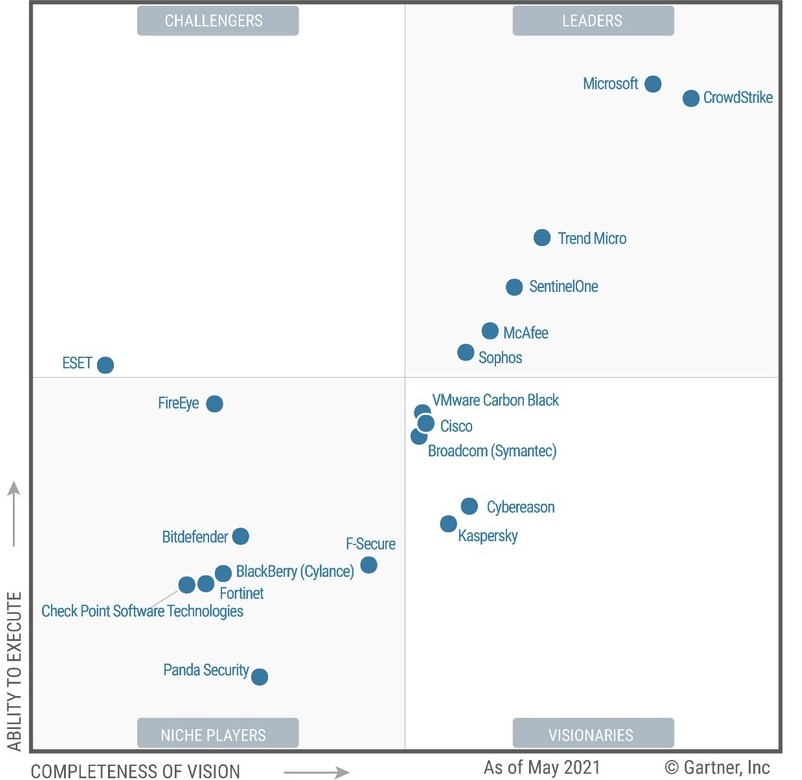Microsoft has started making its Defender for Business cybersecurity offering available as a standalone license for just £2.30 per user per month in an aggressive move to take more endpoint security market share.
Previously only available as part of a broader software bundle, the Microsoft Defender for Business standalone license is aimed at businesses with up to 300 employees as a comprehensive desktop security offering.
But customers eyeing the marketing about universal protection across Android and Mac need to read the small-print: onboarding will require Intune, which isn't included with the cheap new standalone license...
See: Microsoft to add Linux support, custom PowerShell to Intune
At the moment the offering just covers Windows desktops.
"We’re adding support for Windows and Linux servers to Microsoft Defender for Business for business with up to 300 employees, coming later this year with an add-on solution" the company added, without specifying how much this additional add-on will be or whether it will require additional tooling: "Linux servers will use deployment scripts allowing you to integrate into your existing management platforms such as Chef, Puppet, and Ansible."
The Microsoft Defender for Business standalone license gets you...

Defender for Business includes a threat and vulnerability dashboard to identify and manage software vulnerabilities and misconfigurations; network protection; and endpoint detection and response (EDR) across Windows, macOS, iOS, and Android. But if you want to extend this endpoint security for iOS and Android you'll need Intune -- not available as part of the package; you'll need the 365 Business Premium license for that instead. Those wanting their protection on the cheap just across Windows desktop fleets with the newly standalone Defender for Business license can use the "simplified, wizard-driven experience" and onboard devices using local scripts, or with Group Policy.
(Redmond also warns that "running other third-party endpoint protection products alongside Microsoft Defender for Endpoint on Mac is likely to lead to performance problems and unpredictable side effects. If non-Microsoft endpoint protection is an absolute requirement in your environment... safely take advantage of Defender for Endpoint on Mac EDR functionality after configuring the antivirus functionality to run in Passive mode.)

See also: Microsoft retires SQL Server 2019 Big Data Clusters early
The move seems designed -- as well as a chance to grab market share in a competitive space -- to throw a bone to Microsoft partners amid growing discontent across the channel after the company announced plans to retire the Microsoft Partner Program (MPN) in favour of the new Microsoft Cloud Partner Program which comes with stringent new requirements and certification demands.
Dan Truax General Manager, Microsoft Global Partner Solutions, noted in a blog: "With the general availability of Microsoft Defender for Business, partners now have a unique opportunity to acquire new customers to the Microsoft 365 ecosystem with security-led discussions around the capabilities of the standalone solution."
"Defender for Business is a great option for SMBs that want additional security, but are not yet ready to move full-scale to the Microsoft cloud. And, cost-conscious SMBs will find Defender for Business an attractively priced option for protecting their employees from cyberattacks. The standalone offering of Defender for Business opens the door for partners to deepen their relationship with these customers and serve their security needs down the road."
Customers can, however, just buy the Microsoft Defender for Business standalone license directly via Microsoft's website too. And the Intune issue pops up again for those using Microsoft 365 Lighthouse (the "unified admin experience to help IT partners scale security across their customers") -- despite Microsoft's pledge that Lighthouse customers can now "onboard tenants with Defender for Business subscriptions" they will, again, need Intune; i.e. a larger licensing bundle. Customers, of course, continue to have a wide range of choices from numerous other sophisticated vendors but for those looking to improve security, cost-effectively, across a smaller company and not averse to some manual jiggery-pokery, the new offering may look compelling.
Are you a MSFT partner or SMB customer? We'd love your views on this new Defender for Business option









